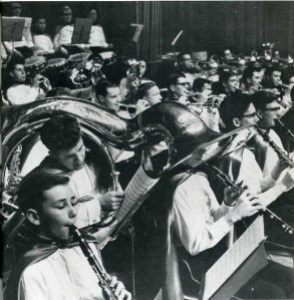How do musicians land performing gigs in a time when more people play tunes on their phones than on their pianos? Many venues where musicians were hosted in the past have removed music performances from their budget.
What do musicians do when economic times don’t even give space on a street corner for them to earn money with the skill that took over a decade or more to learn?
Back in the 1980s, we had WWQuintet gigs that were weekly, mostly monthly. Then the gigs became quarterly, yearly — until the request for paid performances dried up and we all returned our individual instrumental parts to the owner of the score. Paring down to a quartet helped for a brief time. The most “popular” group to be hired was a trio. Eventually, the request was for a duo. Then — down to a soloist.
Our training is extensive as well as expensive when we consider the potential job market. “Fall back” positions as teachers is an insult to my ears considering I decided and prepared to be an educator since the age of twelve.
Back in the 1990s, I received phone calls from “charities” inquiring about musicians to help them earn money for their cause. They always seem to think the musician was able to donate his/her skills or product because they “enjoy” what they do and may benefit from the “exposure.” When I became more skilled at discerning the intent or asked bluntly “Do you have a budget?” the request for a “free performer” did not make my skin crawl as often.
At some point, I began to question whether the fundraiser consisdered asking a garage mechanic, electrician or plumber to donate their time. I replied to a lady who expected I find someone to be a volunteer so SHE could earn money, “The electric company is not impressed that we are musicians when they send a bill, or that we volunteered for your organization.” Her “tune” changed and she said she could afford $75. Wow, from $0 – $75 in only 5 minutes. Good work on my part.
There still is the problem of skilled musicians that have “real” day jobs — and then volunteer. They play for fun by volunteering their service for local symphonies who don’t even pay the musicians! The symphony will pay for tote bags, advertisement — but not have money to pay the musicians?!
This topic is open for discussion and suggestions for how to preserve our heritage of live music performance (not “pop stars”)















